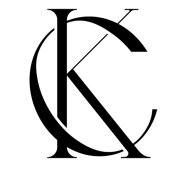Best Bankruptcy & Debt Lawyers in Norway
Share your needs with us, get contacted by law firms.
Free. Takes 2 min.
Or refine your search by selecting a city:
List of the best lawyers in Norway
About Bankruptcy & Debt Law in Norway
Bankruptcy and debt law in Norway is primarily designed to provide a structured process for individuals and companies unable to meet their financial obligations. The Norwegian legal framework promotes transparency, fairness, and a balance between the rights of the debtor and the creditor. When debts become overwhelming, bankruptcy can provide a fresh start for individuals and businesses, albeit with certain restrictions and consequences. Debt restructuring and negotiation are also common approaches to resolve financial distress without formal bankruptcy proceedings.
Why You May Need a Lawyer
There are various situations where individuals or businesses might benefit from legal guidance in the realm of bankruptcy and debt:
- When facing imminent bankruptcy and needing guidance through the process.
- If you are a creditor seeking to recover debts from a bankrupt party.
- In cases of debt negotiations or restructuring to avoid bankruptcy.
- When there are disputes over the distribution of a bankrupt's assets.
- If you're unsure about your rights and obligations under Norwegian bankruptcy law.
- When dealing with cross-border insolvency issues that involve Norwegian entities.
Local Laws Overview
Norwegian bankruptcy and debt regulations fall primarily under the Bankruptcy Act (Konkursloven) and the Satisfaction of Claims Act (Dekningsloven), which outline the procedures and rules governing insolvency proceedings. Key aspects include:
- Voluntary & Compulsory Bankruptcy: Debtors can declare bankruptcy voluntarily, or it can be initiated by creditors.
- Debt Negotiation: Assent from both debtor and majority of creditors is essential for formal debt settlement proceedings.
- Debt Settlement Committee: Appointed to oversee negotiations and monitor compliance.
- Priority of Claims: Specific order for settling creditors’ claims is mandated, with secured claims being settled first.
- Cross-Border Issues: Provisions exist for recognizing foreign insolvency proceedings under certain conditions.
Frequently Asked Questions
What is the primary legislation governing bankruptcy in Norway?
The primary legislation is the Bankruptcy Act (Konkursloven) alongside the Satisfaction of Claims Act (Dekningsloven).
Who can initiate bankruptcy proceedings?
Bankruptcy proceedings can be initiated either by the debtor voluntarily or by creditors who need to demonstrate insolvency.
What happens to an individual’s assets in bankruptcy?
Assets are liquidated by a court-appointed trustee, and the proceeds are used to pay off creditors according to the priority of claims.
Can I negotiate my debts without going bankrupt?
Yes, debt negotiation is encouraged and can be a viable alternative to formal bankruptcy proceedings.
How does bankruptcy affect a business?
For businesses, bankruptcy typically means ceasing operations, with assets being liquidated to pay creditors.
How are creditors’ claims prioritized?
Claims are prioritized by secured, unsecured, and subordinated debts, with secured creditors receiving payment first.
Is it possible to be released from debts through bankruptcy?
Discharge from debts is possible under certain conditions, especially for individuals after completing the process.
What is the role of the trustee in bankruptcy?
The trustee is tasked with administering the debtor's estate, liquidating assets, and distributing proceeds to creditors.
What implications does bankruptcy have on credit rating?
Bankruptcy negatively impacts credit rating, making it harder to obtain credit in the future.
Is cross-border insolvency covered by Norwegian law?
Yes, Norwegian law contains provisions for recognizing and cooperating with foreign insolvency proceedings.
Additional Resources
For more guidance on bankruptcy and debt issues, you can consult:
- Norwegian Courts Administration: Offers information on legal proceedings including bankruptcy.
- The Norwegian Ministry of Justice and Public Security: Provides legislative texts and policy guidance.
- Financial Supervisory Authority of Norway: Supervises financial markets, including insolvency proceedings.
- Debt Restructuring Agencies: Assist in negotiating and restructuring debt.
Next Steps
If you require legal assistance in bankruptcy and debt matters, consider the following steps:
- Consult with a qualified lawyer familiar with Norwegian bankruptcy law to discuss your specific situation.
- Gather all relevant financial documents and records to provide a comprehensive overview to your legal advisor.
- Evaluate all options, including debt negotiation or restructuring, before deciding on bankruptcy.
- If eligible, seek assistance from governmental agencies or non-profit organizations offering debt counseling.
Lawzana helps you find the best lawyers and law firms in Norway through a curated and pre-screened list of qualified legal professionals. Our platform offers rankings and detailed profiles of attorneys and law firms, allowing you to compare based on practice areas, including Bankruptcy & Debt, experience, and client feedback.
Each profile includes a description of the firm's areas of practice, client reviews, team members and partners, year of establishment, spoken languages, office locations, contact information, social media presence, and any published articles or resources. Most firms on our platform speak English and are experienced in both local and international legal matters.
Get a quote from top-rated law firms in Norway — quickly, securely, and without unnecessary hassle.
Disclaimer:
The information provided on this page is for general informational purposes only and does not constitute legal advice. While we strive to ensure the accuracy and relevance of the content, legal information may change over time, and interpretations of the law can vary. You should always consult with a qualified legal professional for advice specific to your situation.
We disclaim all liability for actions taken or not taken based on the content of this page. If you believe any information is incorrect or outdated, please contact us, and we will review and update it where appropriate.
Browse bankruptcy & debt law firms by service in Norway
Norway Attorneys in related practice areas.
Browse bankruptcy & debt law firms by city in Norway
Refine your search by selecting a city.














